The Cox’s Bazar and Bandarban regions of southwestern Bangladesh are often hit by natural and climatic disasters such as cyclones, floods, and severe droughts. These destroy houses, damage crops, and make water unsuitable for consumption and agriculture. The local population is thus confronted with a lack of access to drinking water and chronic food insecurity.
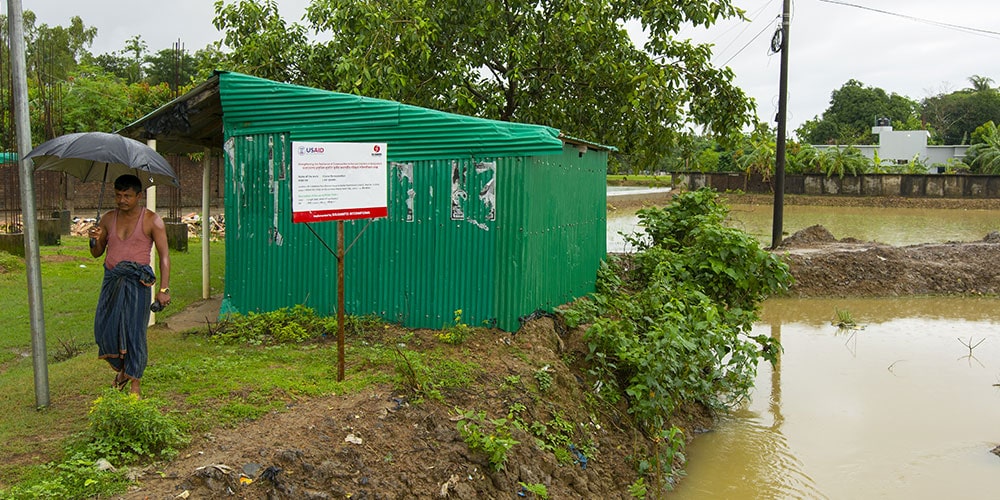
The influx of more than 860,000 Rohingya refugees since 2017 in the region has also increased the pressure on available resources. Humanitarian needs in the area are therefore significant, accentuated by the health and economic consequences of the COVID-19 pandemic.
SOLIDARITÉS INTERNATIONAL has been working in the area for more than ten years to improve the quality of WASH services (Water, Sanitation and Hygiene), reduce the risk of disasters, strengthen food security, and improve the livelihoods of local populations and refugees. The latter aims to contribute to the food autonomy of these communities and to better adapt to potential disaster risks.
Bangladesh
Context and action- 165.65 million inhabitants
- 129th out of 191 countries on the Human Development Index
- 29.780 people helped
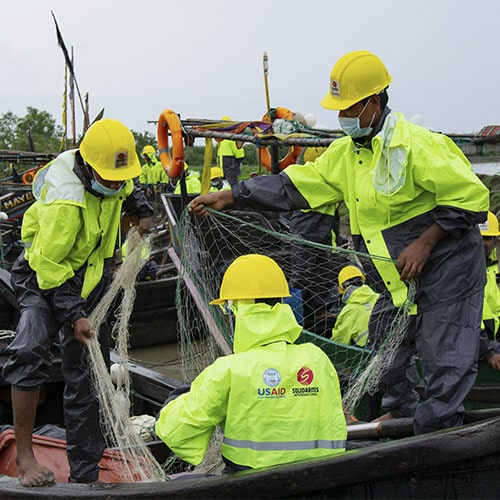
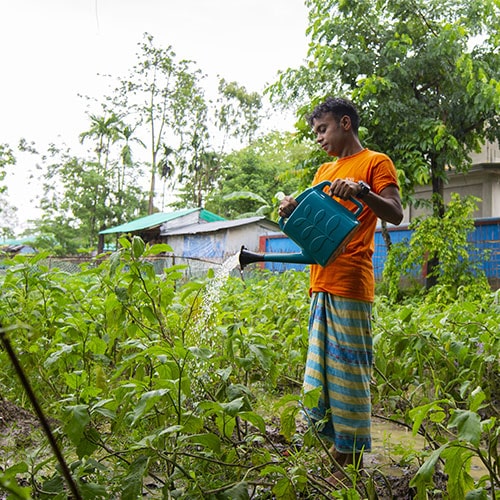
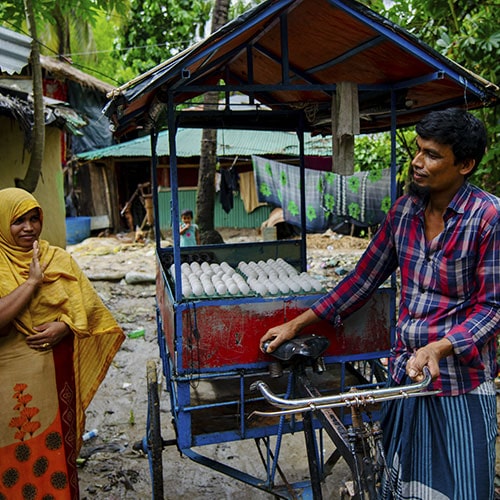
The main sources of food and income for the local population are fishing and agriculture. The cultivation of rice is particularly important, but is hampered by increasingly poor soil and the presence of diseases. It also requires the use of seeds adapted to the consequences of natural disasters (land flooded for long periods, salinity of the water, etc.), which are either expensive or non-existent on local markets. As a result, some cities are becoming increasingly dependent on external markets, both domestic and foreign, in order to grow crops and feed their populations. Price fluctuations are an additional constraint for already weakened communities.
The vital issue for these populations is to anticipate and overcome the damage caused by natural disasters. To address this issue, SOLIDARITÉS INTERNATIONAL has undertaken to implement a program to support agricultural professions and strengthen livelihoods in the upazilas of Teknaf and Alikadam.
During the summer and fall of 2020, training sessions were held so that project beneficiaries could learn how to produce vermicompost, prepare and irrigate soil, learn about and choose different seed varieties, produce seedlings, plan planting times, and use natural and inexpensive treatments to prevent crop diseases. Farmers also received training in grain storage to help them preserve the fruits of their harvest in the best possible conditions.
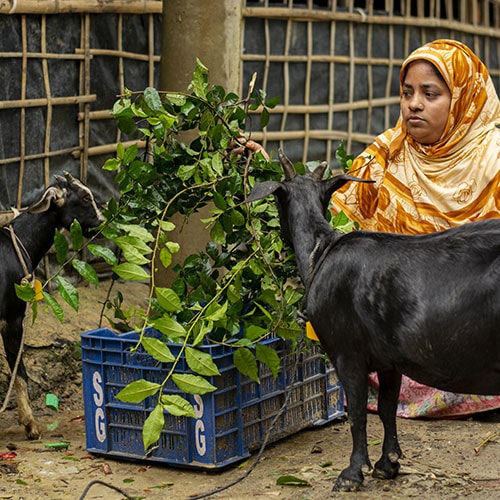
SOLIDARITÉS INTERNATIONAL also intends to participate in the development of livestock. To this end, our NGO has distributed poultry and goats and organized training sessions to teach animal reproduction, stock management, the value of products for sale, and basic accounting. In addition, our teams have set up six mobile veterinary clinics, which circulate in Teknaf and Alikadam to provide basic care and medicine to livestock.
SOLIDARITÉS INTERNATIONAL also works with butchers, with the support of municipalities, to ensure that they respect the sanitary conditions for cutting, storing, and transporting meat.
Finally, because small businesses in these two areas are also victims of natural disasters, our NGO has launched a program to help small merchants, grocery stores, and tailors. With the help of kits, training sessions, and scholarships, our teams are working to revitalize this sector.
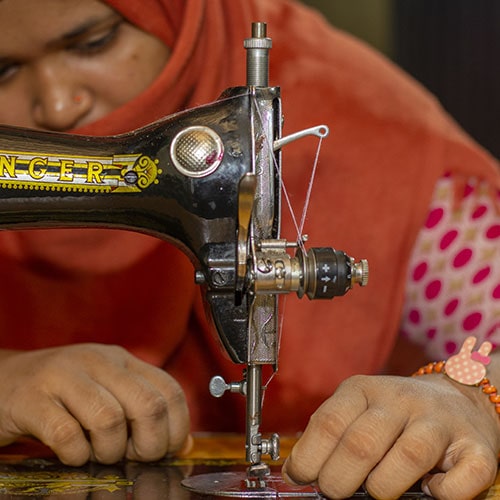
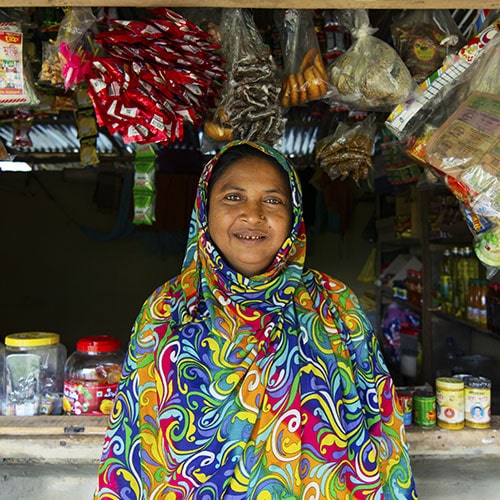
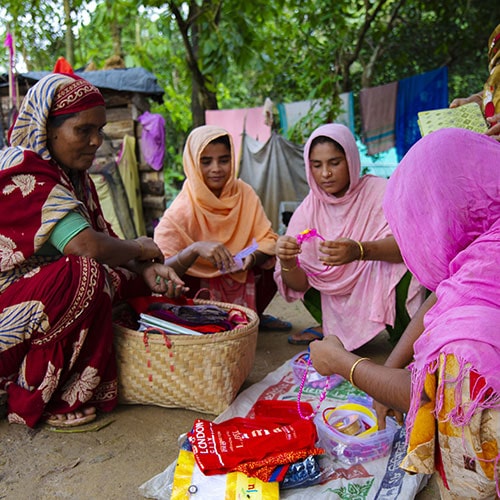
In close collaboration with various national and international organizations, SOLIDARITÉS INTERNATIONAL organizes training and information days on the frequency and seasonality of bad weather, the vulnerability of certain sectors, and potential risks that can be avoided in order to take the best possible measures to protect one’s family and property.
Bangladesh is one of the most at-risk countries in the world in terms of natural disasters, which include cyclones, floods, droughts, salinity, and climate change. About 10 million people are affected every year. To cope with these recurring hardships, the Bangladeshi government has been pushing for the development of national policies dealing with Disaster Risk Reduction (DRR). Authorities are responsible at every level of governance, from the Ministry of Disaster Management to the Committee of Disaster Management Relief. SOLIDARITÉS INTERNATIONAL worked to link the administrative level (equivalent to communities of communes) to the ward level of the Unions, by creating, or strengthening, Ward Disaster Management Committees. Volunteers from the communities participated in the creation and risk analysis of the Union action plans.
To carry out its projects, SOLIDARITÉS INTERNATIONAL is accompanied by USAID and cooperates with local actors and relevant authorities. Meetings and exchanges are regularly organized to obtain the necessary authorizations for the implementation of aid programs in the field. Our organization also relies on established local associations and groups.
According to the United Nations scientific studies, the natural risks and the number of disasters related to global warming will not decrease in the near future. Given the geographical and geological situation of Bangladesh, as well as the constantly expanding demographic situation accelerated by the regular influx of Rohingya refugees, it remains vital and necessary for SOLIDARITÉS INTERNATIONAL to continue its actions in support of the population in order to enable them to prepare and adapt to an unstable situation.

